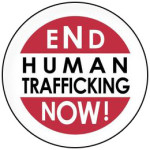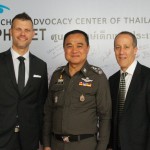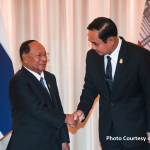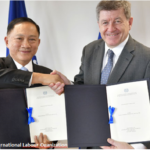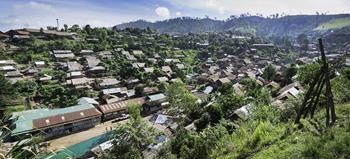
The United Nations High Commissioner for Refugees said last week that Thailand had taken a positive step in allowing victims of human trafficking and witnesses in trafficking trials to stay and apply to work legally in the Kingdom for up to one year, as police arrested another member of a passport forging gang.
“This is a positive step in the right direction,” said Ruvendrini Menikdiwela, the United Nations High Commissioner for Refugees (UNHCR) representative in Bangkok. “It acknowledges the specific needs of people who have suffered at the hands of smugglers and traffickers, including people who fled conflict and persecution back home.”
Under the government of Prime Minister Prayut Chan-o-cha, Thailand has launched a comprehensive response to the problem of human trafficking. The actions have included enacting new laws, stepped up law enforcement, providing shelter and services to victims and witnesses, reforming the fishing and seafood industries and adjusting regulations among many measures.
As many trafficking victims are foreign migrant workers seeking better opportunities in Thailand, the Ministry of Labor has been revising rules and regulations to document these workers and improve their working conditions.
Victims and witnesses have also been receiving greater protections, both for humanitarian reasons and to assist the justice system in prosecuting and punishing traffickers.
Last week, Grisada Boonrach, permanent secretary of the Ministry of Interior, said victims and witnesses of human trafficking would be given temporary permits that will allow them to stay in Thailand for up to one year while cases in which they are involved are being investigated or tried.
The temporary permits could be extended for another year depending on the progress of human-trafficking trials, and victims would be allowed to apply for work permits while they stay in the country, he said.
Menikdiwela of UNHCR said, “This move provides an important alternative to detention, protects them from being returned to a place where their lives and freedoms could be in danger, and grants them the right to work so that they can be self-reliant as they await longer-term solutions.”
Also last week, police arrested a Pakistani national they said was a key player in the passport-forging ring broken up by the authorities early this year. Forged passports and travel documents are sometimes used in human trafficking operations, people smuggling, drug smuggling and terrorism.
The Pakistani, identified as Mahammad Rumzan, produced false visa stamps and stickers for passports and worked under an Iranian named Hamid Reza Jafaryarrested in February and known as “The Doctor.” He had been selling fake passports for many years in Thailand. Rumzan was known as “Johnny Painter” and posed as a portrait painter in the Sukhumvit area of Bangkok.
Police found 40 fake passports for 12 European countries, 20 fake visa stamps, 91 fake visa stickers and some forgery tools. He was arrested while allegedly delivering a forged passport to a customer in the capital.
For more information and updates about Thailand’s policies and actions against trafficking in persons and related issues, visit www.thaianti-humantraffickingaction.org
Photo Mae La refugee camp from UNHCR

